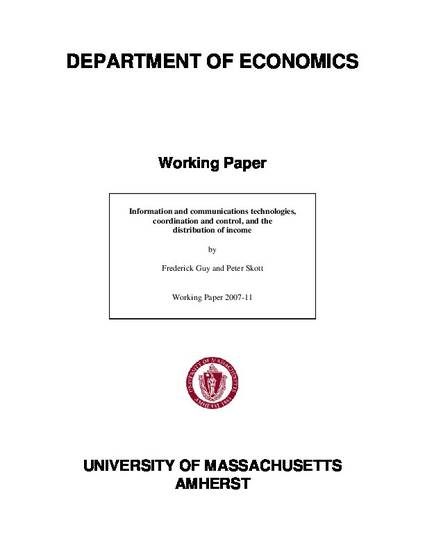
We consider the links between information and communications technologies (ICTs) and the distribution of income, as mediated by problems of coordination and control within organizations. In the large corporations of the mid-twentieth century, a highly developed division of labor was coordinated and controlled with the aid of relatively underdeveloped ICTs. This created a situation in which the options of top management were constrained while the individual and collective power of lower paid workers was enhanced. Only in the late twentieth century, when the microprocessor and related technologies transformed the information systems of organizations, did improvements in the tools of coordination and control race ahead of the growing demands of coordination and control. These technological changes have reduced the power of lower-paid employees, increased that for higher-paid employees, and led to an increase in income inequality. Thus, the more important aspects of new technology relate to the ‘power-bias’, rather than the ‘skill-bias’, of technological change.
Available at: http://works.bepress.com/peter_skott/17/
